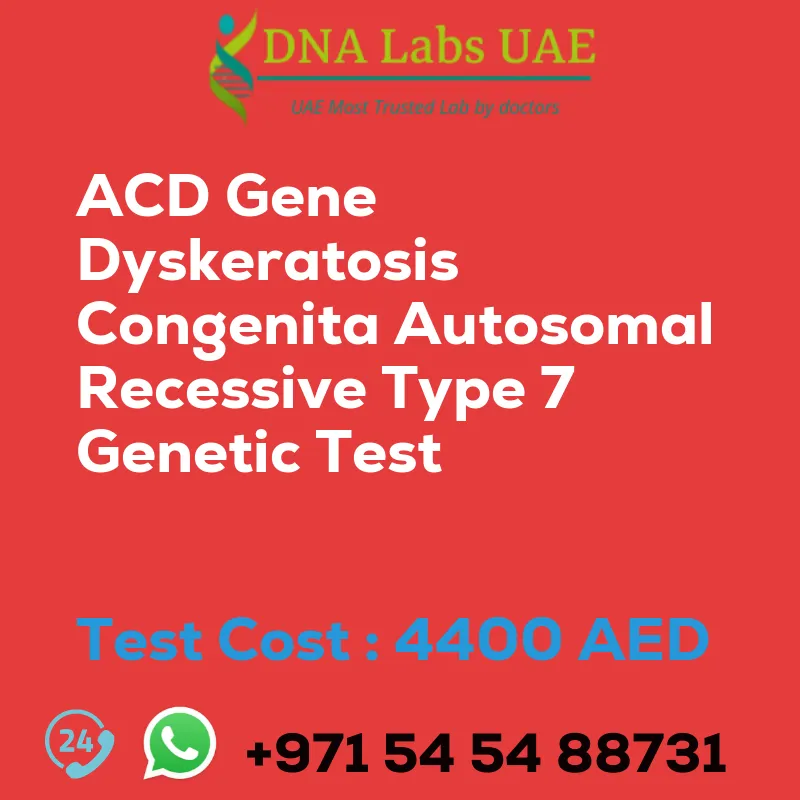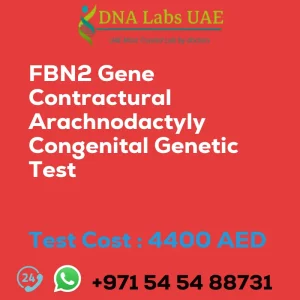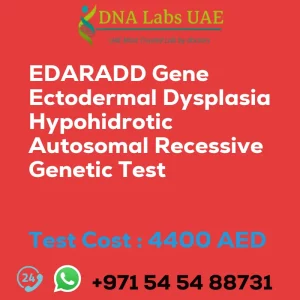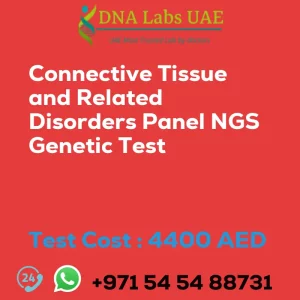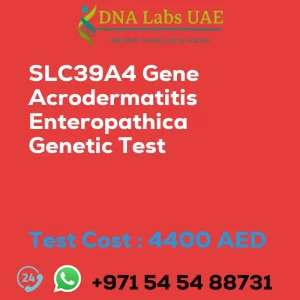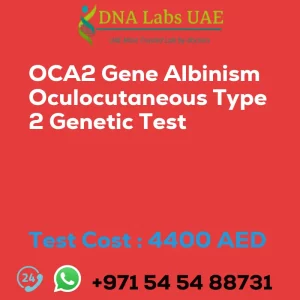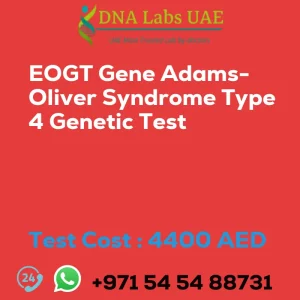ACD Gene Dyskeratosis Congenita Autosomal Recessive Type 7 Genetic Test
Welcome to DNA Labs UAE, where we offer the ACD Gene Dyskeratosis Congenita Autosomal Recessive Type 7 Genetic Test. This test can help diagnose and provide valuable information about Dyskeratosis Congenita, a rare inherited genetic disorder.
Test Details
The ACD gene is associated with Dyskeratosis Congenita (DC), a condition characterized by physical abnormalities and increased susceptibility to certain medical conditions. Autosomal recessive type 7 specifically refers to a subtype of Dyskeratosis Congenita caused by mutations in the ACD gene. To develop the disorder, an individual must inherit two copies of the mutated gene, one from each parent.
Test Components and Price
Our ACD Gene Dyskeratosis Congenita Autosomal Recessive Type 7 Genetic Test is priced at AED 4400.0. The test requires a blood sample for analysis.
Report Delivery and Method
After the blood sample is collected, the report will be delivered within 3 to 4 weeks. The test utilizes NGS Technology, also known as Next-Generation Sequencing, to analyze the DNA sequence of the ACD gene.
Test Type and Doctor
The ACD Gene Dyskeratosis Congenita Autosomal Recessive Type 7 Genetic Test falls under the categories of Osteology, Dermatology, and Immunology Disorders. It is recommended to consult with a Dermatologist for this test.
Test Department
The ACD Gene Dyskeratosis Congenita Autosomal Recessive Type 7 Genetic Test is conducted in our Genetics department.
Pre-Test Information
Prior to undergoing the ACD Gene Dyskeratosis Congenita Autosomal Recessive Type 7 Genetic Test, it is important to provide the clinical history of the patient. Additionally, a Genetic Counselling session is recommended to draw a pedigree chart of family members affected by Dyskeratosis Congenita and the ACD gene.
About NGS Genetic Testing
NGS genetic testing is a powerful tool that allows the simultaneous analysis of multiple genes. In the case of Dyskeratosis Congenita, NGS genetic testing can confirm a diagnosis, identify specific genetic mutations, and provide valuable information for genetic counseling and family planning. It can also detect carriers of the gene mutation who may not exhibit symptoms of the disorder.
It is crucial to note that genetic testing should always be conducted and interpreted by qualified healthcare professionals, such as geneticists or genetic counselors, who can provide appropriate guidance and support.
| Test Name | ACD Gene Dyskeratosis congenita autosomal recessive type 7 Genetic Test |
|---|---|
| Components | |
| Price | 4400.0 AED |
| Sample Condition | Blood |
| Report Delivery | 3 to 4 Weeks |
| Method | NGS Technology |
| Test type | Osteology Dermatology Immunology Disorders |
| Doctor | Dermatologist |
| Test Department: | Genetics |
| Pre Test Information | Clinical History of Patient who is going for ACD Gene Dyskeratosis congenita, autosomal recessive type 7 NGS Genetic DNA Test. A Genetic Counselling session to draw a pedigree chart of family members affected with ACD Gene Dyskeratosis congenita, autosomal recessive type 7 NGS Genetic DNA Test gene ACD |
| Test Details |
The ACD gene is associated with a genetic disorder called dyskeratosis congenita (DC). Dyskeratosis congenita is a rare inherited condition characterized by a range of physical abnormalities and increased susceptibility to certain medical conditions. Autosomal recessive type 7 refers to a specific subtype of dyskeratosis congenita caused by mutations in the ACD gene. In autosomal recessive inheritance, an individual must inherit two copies of the mutated gene (one from each parent) to develop the disorder. NGS genetic testing, or next-generation sequencing genetic testing, is a type of genetic testing that can analyze multiple genes simultaneously. It uses advanced sequencing technology to examine the DNA sequence of specific genes, such as the ACD gene, and identify any mutations or variations that may be present. NGS genetic testing for dyskeratosis congenita, autosomal recessive type 7 (caused by mutations in the ACD gene) can help confirm a diagnosis, provide information about the specific genetic mutation(s) present, and assist in genetic counseling and family planning. It may also be used to identify carriers of the gene mutation, as carriers typically do not show symptoms of the disorder. It is important to note that genetic testing should always be conducted and interpreted by qualified healthcare professionals, such as geneticists or genetic counselors, who can provide appropriate guidance and support. |

